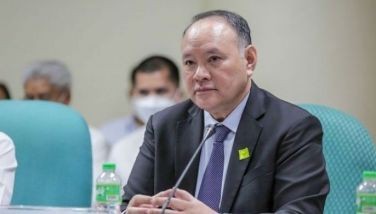News Analysis: Peace talks between gov't and leftist rebels in limbo
MANILA, Philippines (Xinhua) - While the peace process between the Philippine government and the separatist Moro Islamic Liberation Front (MILF) has shown some tangible results, the negotiations with the Communist Party of the Philippines (CPP) and its armed wing the New People's Army (NPA) are now on its death throes.
The Philippine government and the Mindanao-based MILF have already signed a framework agreement that would serve as the guidepost in the formulation of a final peace accord that would end the decades-old fighting in the southern Philippines.
In the case of the leftist rebellion, both sides are blaming each other for the collapse of the talks.
Last week, Malacanang, the seat of the Philippine government, rejected the demands and conditions set by leftist rebels before going back to the negotiating table, saying the "special track" they are proposing should be dropped for now until they make up their minds.
Deputy presidential spokesperson Abigail Valte said the ball is now in the hands of the leftist insurgents on whether the talks would move forward. "They kept changing the conditions for the special track and that was not acceptable to us," Valte said.
What Valte has said practically scrapped the negotiations since the Netherlands-based National Democratic Front (NDF), the political arm of the CCP-NPA, has categorically said that there will be no talks unless the government agrees to release detained communist leaders who are facing criminal charges.
Luis Jalandoni, chairman of the NDF negotiating panel, said that the freeing of the rebels with immunity guarantees is an obligation of the government.
Government chief peace negotiator Alexander Padilla said that aside from their demand for the release of their detained consultants, the NDF also demanded that the Philippine government abolish its peace and development programs, including the conditional cash transfer (CCT) or cash dole-outs for the poor and the military's Oplan Bayanihan.
At the start of the administration of President Benigno Aquino III, the Armed Forces of the Philippines adopted a new strategy in dealing with the NPA called the Internal Peace and Security Plan or Oplan Bayanihan.
Oplan Bayanihan discarded the old military approach of confronting the rebels but instead encourage them to return to the fold of the law by giving them financial assistance to start a new life.
In a statement released Thursday, Padilla unveiled a new approach in negotiating with the CPP-NPA-NDF which, he said is " time-bound and agenda-bound."
Padilla cited the negotiations with the MILF and other peace talks abroad such as the current Colombian talks "where results are there after a given period of time."
Under the new approach, the government would get inputs from the people in the NPA-infested areas throughout the country before the peace talks with the communist rebels resume.
Padilla said hostilities must cease since thousands of civilians have suffered the brunt of the armed violence in 46 years of the leftist insurgency.
"They should put an end to the senseless violence they are inflicting on our people, especially on innocent civilians," he said.
Elaborating on the new approach, Presidential Adviser to the Peace Process Teresita Deles said that the government would soon start undertaking discussions and consultations with civil society groups and other sectors.
Deles said that the government remains committed to end all internal conflict in the country through a "multi-track approach."
But Jose Maria Sison, CCP founding chairman and now consultant to the NDF, has shot down the "localized approach" adopted by the government.
In a statement from Utrecht, the Netherlands, where he and Jalandoni live in exile, Sison said the CPP-NPA-NDF do not allow such localized peace talks because "this would fragment the highly-unified revolutionary movement."
Sison charged that what the Aquino government is now trying to do is to conduct "fake localized" peace talks by using its military assets.
He squarely blamed the Aquino administration as responsible for the impasse in the peace negotiations with the NDF, but insisted that the peace process is not officially dead.
Sison and Jalandoni said that the government has not officially notified the NDF of the termination of the talks, a process that is stipulated in the joint agreement on safety and immunity guarantees (JASIG) signed by sides in l995.
- Latest
- Trending





























